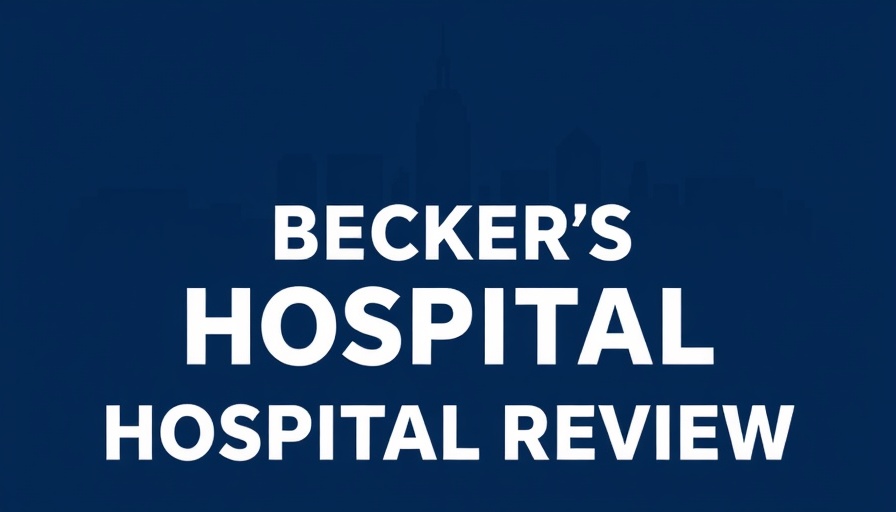
NIH Funding Freeze: A Growing Concern for Universities
In an alarming turn of events, the National Institutes of Health (NIH) has frozen funding to five major university institutions, including Harvard University and Northwestern University, amid a heated political climate. This decision not only impacts ongoing research projects but raises questions about the broader implications for healthcare innovation and workforce development within the field.
The Ripple Effect of Stopped Grants
According to a leaked internal email from the NIH, funding has been halted for several ongoing initiatives at these institutions. Researchers have reported receiving stop-work orders on important projects, with Northwestern indicating over 100 projects impacted, including those addressing diseases like Parkinson's and wearable health technology initiatives. Similarly, Cornell University halted more than 90 projects vital to cancer and infectious disease research. This freeze inevitably disrupts the flow of knowledge and progress in healthcare, directly affecting patient care and medical advancements that depend on these studies.
The Background of Federal Scrutiny
The funding freeze is part of a broader investigation into how universities are tackling antisemitic harassment. The affected institutions, along with others, are under scrutiny by the Joint Task Force to Combat Antisemitism. This situation highlights the intersection of politics and healthcare funding, raising serious issues about institutional autonomy and the potential chilling effect on academic freedom. These developments signal a shift not only in grant allocation but also in how universities may be compelled to address sensitive sociopolitical issues.
Legal Action: Harvard's Pushback Against Federal Overreach
In response to the freeze, Harvard University has taken a bold step, filing a lawsuit against the Trump administration. The university argues that the government is overstepping its bounds by using funding withdrawal as leverage to dictate university governance and program structure. By seeking a court injunction, Harvard crystallizes the tension between federal oversight and institutional independence, a fundamental aspect of higher education that can significantly affect healthcare research landscapes.
Implications for Healthcare Innovation
The threat of halted research funding poses a critical risk to innovation in healthcare. Areas reliant on federal research grants may see slower development of essential technologies and treatments, particularly in the wake of rising healthcare demands driven by an aging population. With regulatory scrutiny and the potential for funding cuts, professionals in the healthcare industry must consider new strategies for funding, collaboration, and research sustainability.
Practical Insights for Healthcare Providers
Independent healthcare providers, including family practice doctors and urgent care clinic directors, can take actionable steps amidst this uncertain environment. Embracing practice automation and exploring healthcare business tools may help optimize revenue and increase efficiency. For example, integrating remote therapeutic monitoring (RTM) programs can enhance patient engagement, potentially allowing practices to better manage costs while improving care quality.
Future Predictions: The Path Forward for Universities and Healthcare
As the legal battles play out, one can anticipate potential changes in how federal agencies interact with educational institutions. The outcome of Harvard's lawsuit could set precedence affecting funding distributions across various research areas. Universities may need to reassess their operational frameworks and compliance with federal mandates to safeguard future projects.
The Importance of Advocacy and Engagement
As these funding decisions unfold, it’s essential for healthcare professionals and advocates to engage with policymakers. Encouraging a dialogue about the value of research in promoting community health and economic stability can help emphasize the need for continuous funding and support for innovation.
Conclusion: The Need for Strategic Adaptation
Healthcare providers are urged to remain vigilant and adapt to the shifting landscape of research funding. By understanding the implications of NIH's funding freezes, professionals must seek innovative solutions and collaborative models that align with emerging regulatory frameworks. These adaptable strategies will be crucial for the sustainability of both healthcare practices and ongoing medical research.
 Add Row
Add Row  Add
Add 




 Add Row
Add Row  Add
Add 

Write A Comment